The Cycle of Motherhood: On Before You Were My Mother
The premise of Before You Were My Mother (2022) by Prasuna Dongol is simple: the filmmaker asks, Who was my mother before she became my mother? Recently screened by photo.circle at Patan House, the film unravels the circumstances that led to Dongol’s mother migrating to Nepal following her marriage and settling into life amidst an unfamiliar country, society and language(s). An image of her mother’s early life is gleaned through intimate conversations held on a trip back to her mother’s maternal home in Manipur, India.
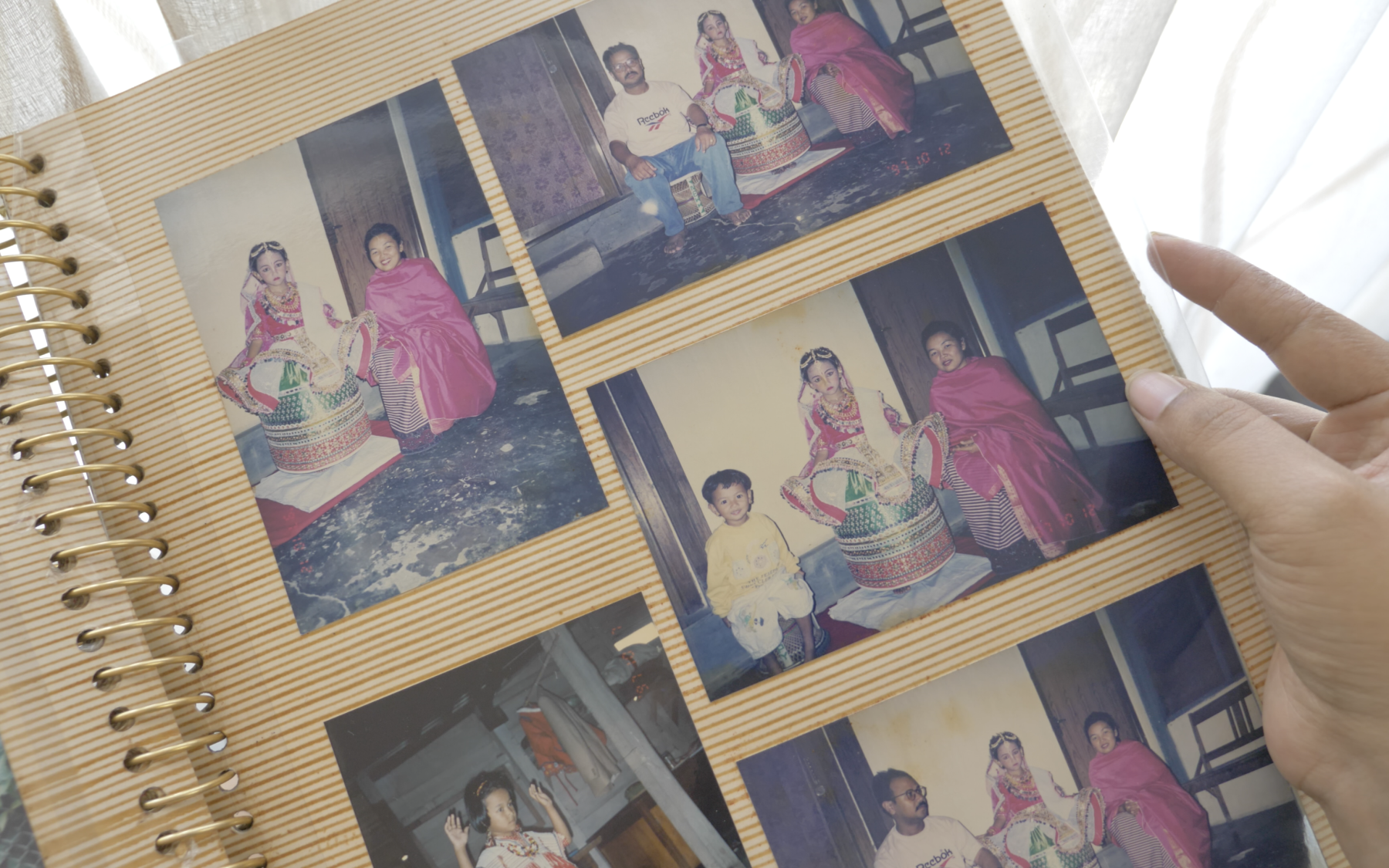
Prasuna Dongol sifts through family albums and teenage pictures of her mother in an attempt to gauge her mother’s attitude and character.
The film starts with extreme close-up shots of Dongol’s hands as she scans family pictures, including those from her mother's childhood and teenage years. Attempting to construct a persona of her mother as a teenager, she speculates, “She looks like a happy and cheerful person. Someone who has a lot of friends around her.” Thanks to Dongol’s father, who had a penchant for taking home videos and pictures, Dongol has access to a plethora of her own childhood clips and pictures. These are scattered throughout the film, providing complementary visuals to her narration and reminiscences. In this deeply personal observational film, narration acts as an essential element of introspection, adding depth and context to past events and her mother’s character.
The film is structured around a trip to Manipur by the mother-daughter duo as the latter attempts to explore the identity and history of the former as an individual. In Manipur, Dongol’s mother is reunited with Aboksi (Dongol’s maternal grandmother) after years of separation. Here, she quickly integrates into the domestic life of her maternal household; she helps around the house with chores, watches drama serials on television in the evenings, and converses with Aboksi while massaging her joints.
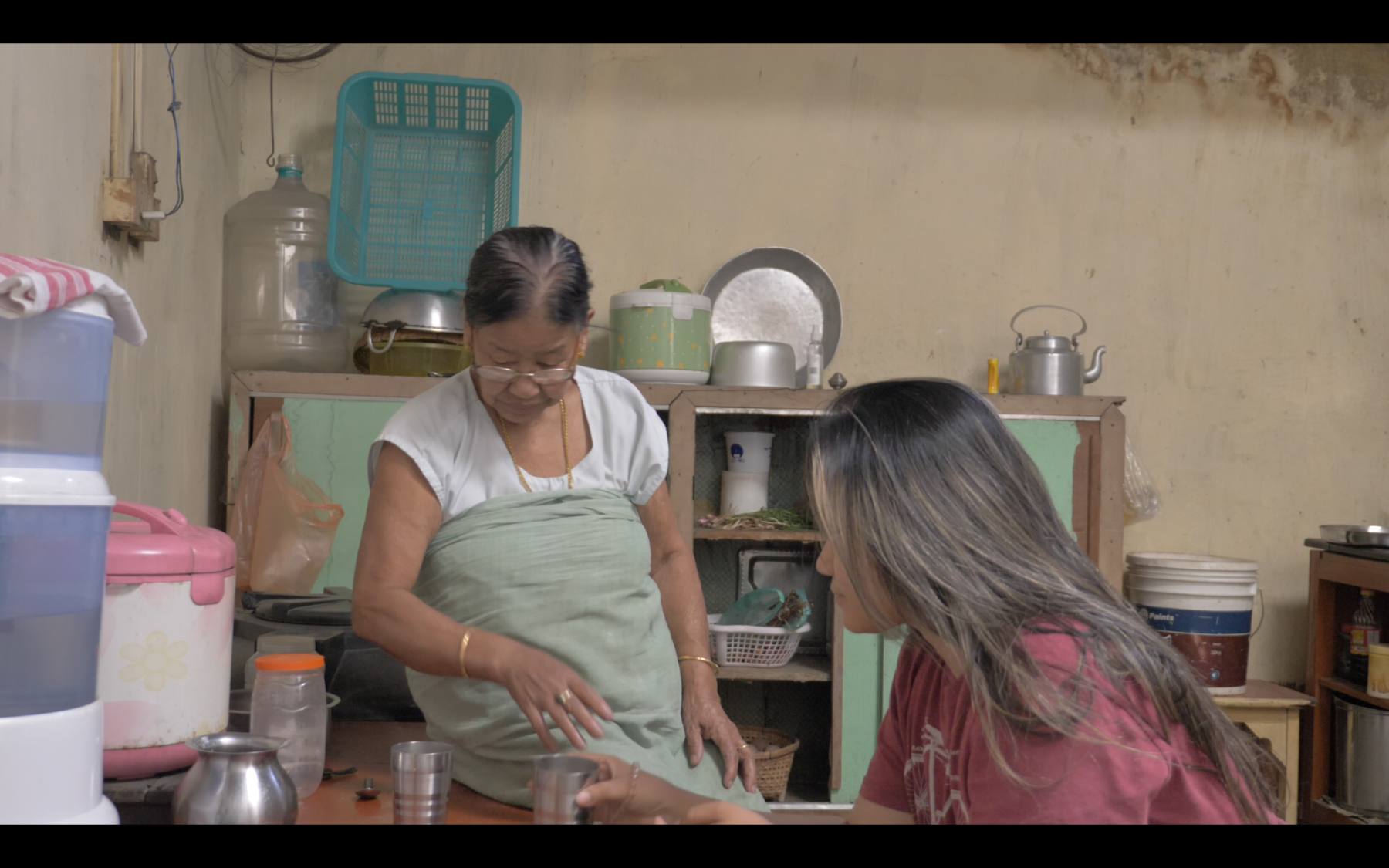
Aboksi (left) and Dongol reunite after decades when Dongol makes a trip to Manipur, India, with her mother.
In her groundbreaking book, All About Love: New Visions, bell hooks posits that love and abuse cannot coexist. Parents who abuse their children—whether physically, mentally, or emotionally—in essence do not love their children. Her take, which may seem controversial for some, does not mean that all blame should be levied on parents. Rather, it is a way of understanding past trauma so that we can forge new paths with a deeper understanding of love and abuse.
While Dongol and her mother have a strong bond, she, at times, does not understand her mother’s anger and anxiety, which she views as bordering on the unreasonable. In one scene, she questions her mother about whether she remembers a childhood incident in which she harshly reprimanded Dongol for coming home late from a friend’s house. Her mother has forgotten the incident and laughs away the episode. The sequence reveals how relationships between parents and children are often complicated, as a result of which finding a middle ground can be extremely difficult. Responding to Dongol’s complaint about her mother’s incessant calls when she works late, her mother replies by quipping that parents worrying about their children and their well-being is natural. She argues, “Would it be better to have parents who do not call you at all?” When Dongol continues to interrogate her mother throughout the film, her mother eventually retaliates by asking her if this is the whole purpose behind her film: to portray her mother as being at “fault.”
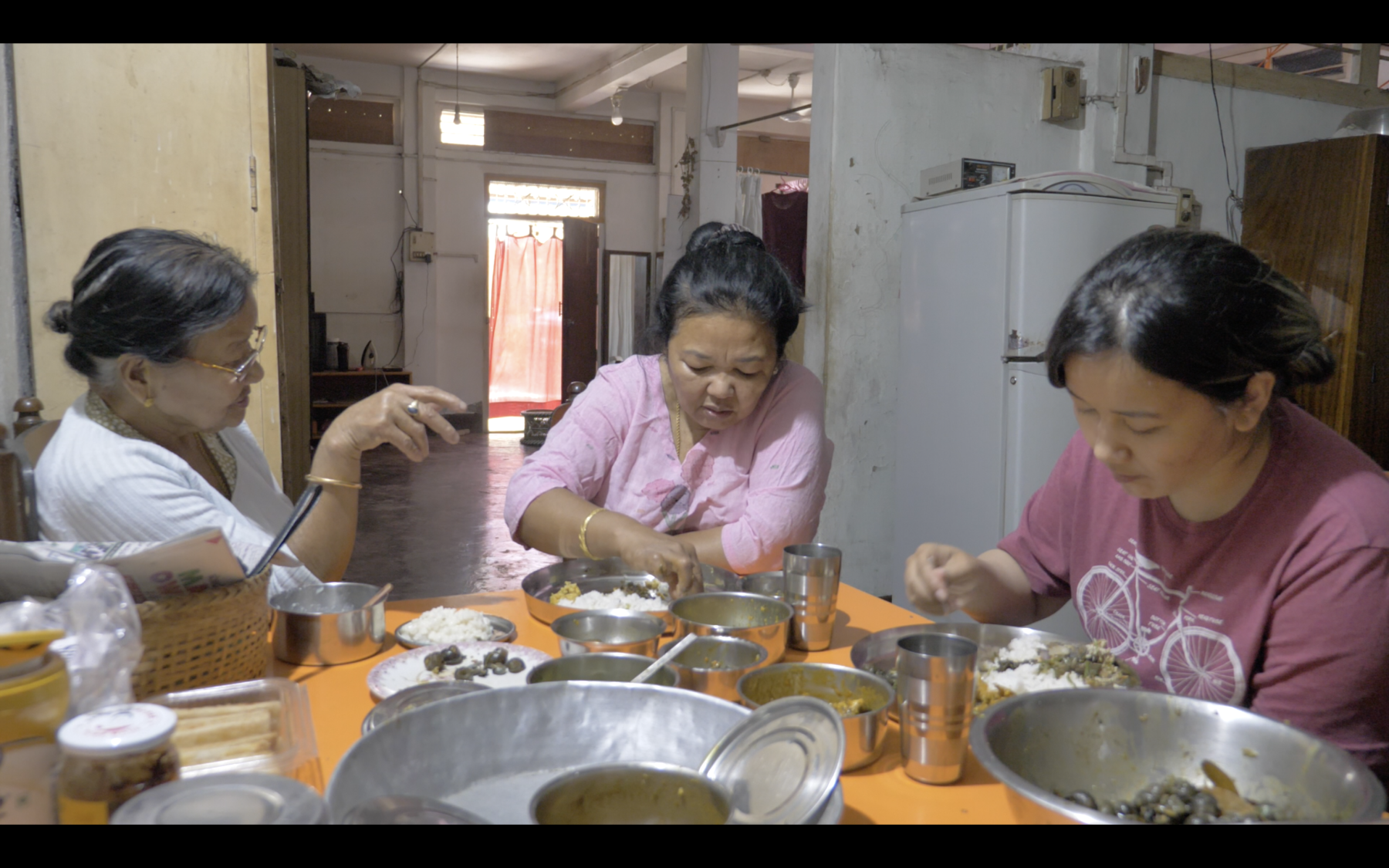
Aboksi (left), Dongol’s mother (middle), and Dongol explore the complexities of mother-daughter relationships through intimate conversations over the course of the film.
The film artfully handles the conflict between mothers and daughters by slowly exploring it, conversation by conversation. In particular, the relationship between Dongol’s mother and Aboksi becomes a crucial aspect of the film as it mimics and sheds light on many aspects of Dongol’s own relationship with her mother. There is a particular scene in which Dongol claims that her mother and Aboksi are both rebellious, defying the expectations and wishes of their elders. Her mother laughs in a distinctive manner, similar to Aboksi’s carefree laughter.
Other similarities also appear. Dongol’s mother and Aboksi both experienced a heavy sense of loss when their eldest daughters left their home country for marriage and studies respectively. Aboksi tells Dongol, “The first time your mother went to Kathmandu, I was very sad. I went around like a crazy person. Everyone comes back home, but your mother does not come back.” In a similar vein, Dongol’s mother reveals, “When you went to the UK for your studies, you were alone and complained that you were unable to sleep, but we ourselves sent you there. Imagine when I ran away from home, my parents did not know anything. Imagine how much they worried about me!”
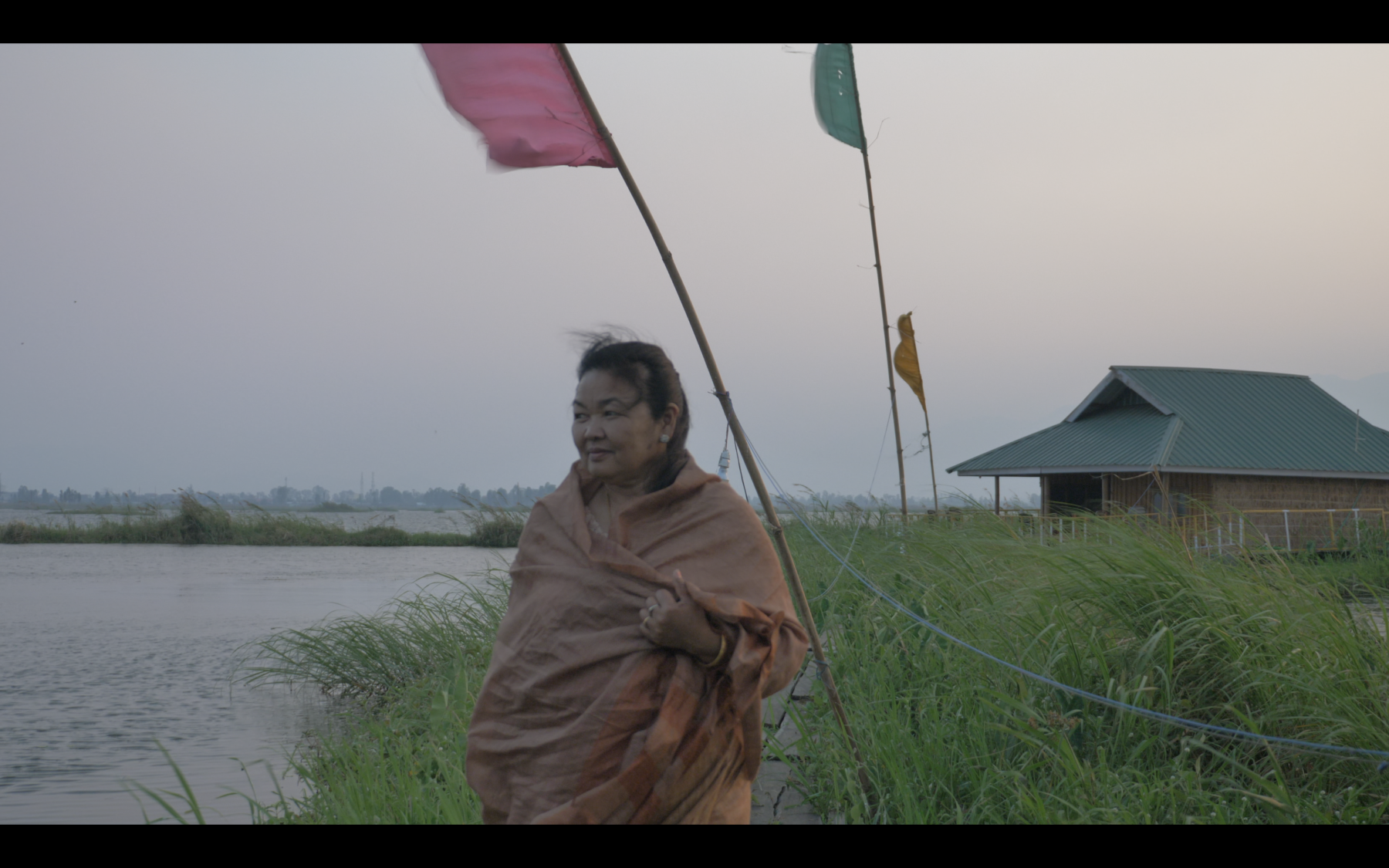
Dongol’s mother was born and raised in Manipur, India, but moved to Kathmandu, Nepal, after marriage.
Dongol’s mother also delves into the context and history of violence that gripped Manipur during the protests against AFSPA and combing operations by the CRPF. She shares how, during a family trip to Moirang, she heard numerous stories of violence. Even though she had not witnessed conflict first-hand, she was nevertheless scared for her family’s safety. Similarly, during the Democratic Movement of 2006 in Nepal, a false bomb scare in Bhotahiti had her scrambling for safety in a relative’s house, revealing the lasting and often hidden impact of trauma.
Conversations—ranging from tender and intimate to slightly accusatory—form the crux of the film. Through these, one starts to understand and appreciate, if not condone, the protective nature of parents in our part of the world. At the same time, the fly-on-the-wall shots of Dongol, her mother and Aboksi completing mundane household chores and watching television together stand in contrast to the investigative aspect of the conversations. Through their actions, one can imagine the depth of love, care and affection between the mothers and daughters.
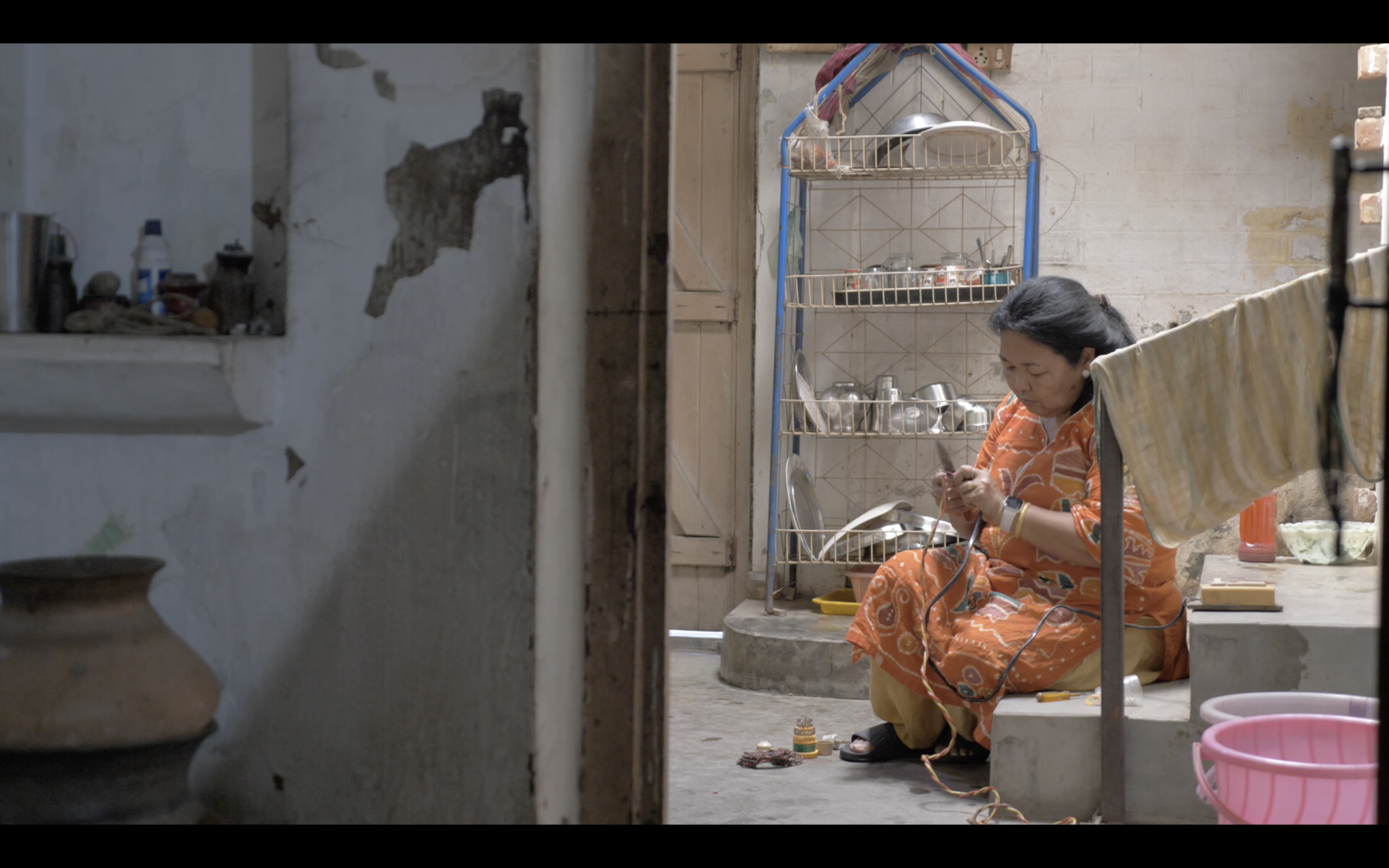
Dongol’s mother helps out with household chores and often engages in conversations with Aboksi.
The film offers a heart-touching tale of mothers and daughters as they struggle against conflicts, social norms and generational gaps to mend their wounds and understand each other better. “Becoming a mother is like coming back from war. I cannot express the pain to you,” Dongol’s mother explains in a scene. Through its intimate documentation of familial tensions, the trip to Manipur, and the countless candid conversations, the film interrogates the complex experiences of motherhood.
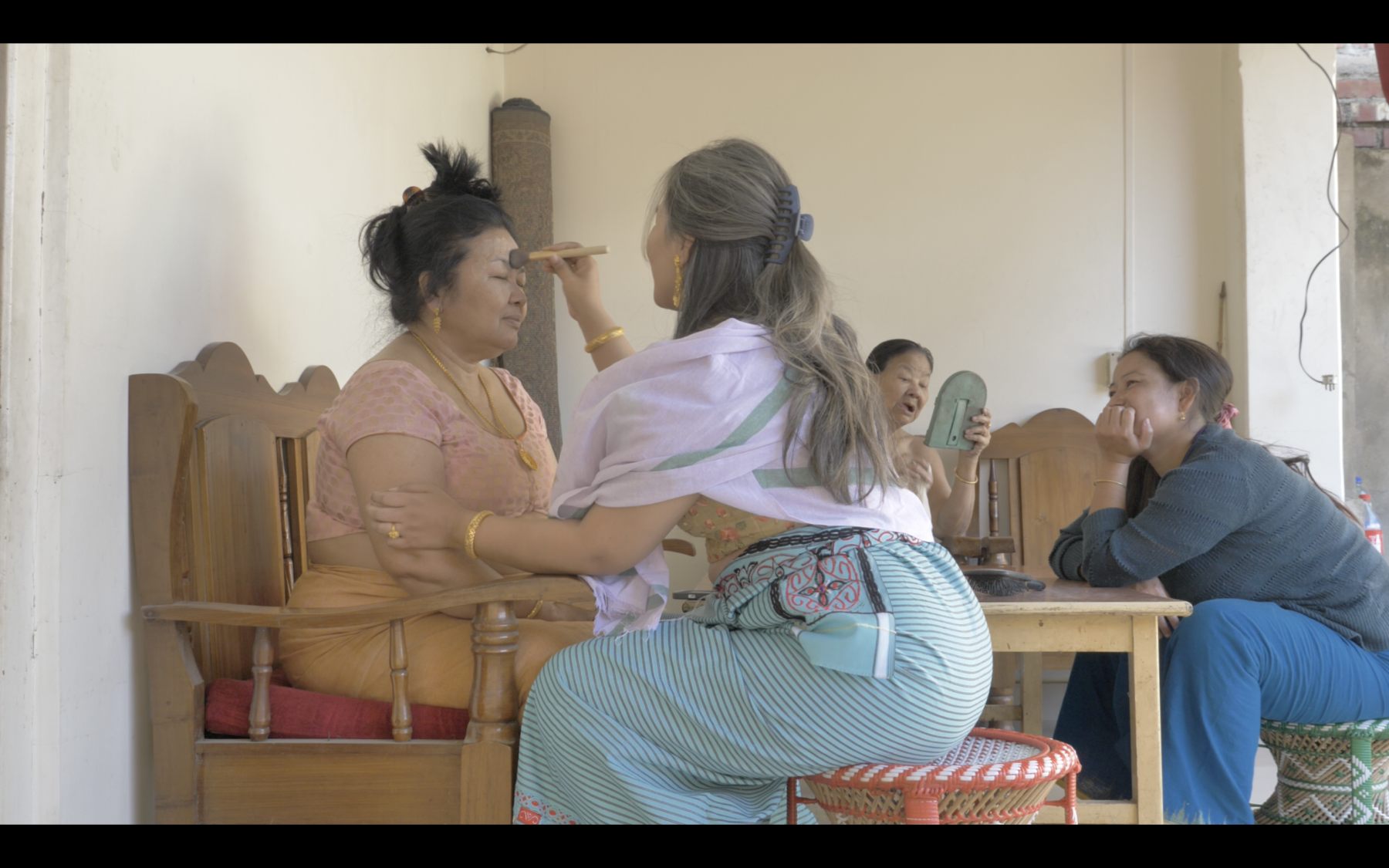
Dongol (second from left) helps to complete the make-up of her mother for a wedding celebration in her mother’s hometown in Imphal, Manipur.
To read more about gendered explorations of intergenerational relationships, revisit Annalisa Mansukhani’s essay on Cheryl Mukherji’s practice, Najrin Islam’s review of Archana Phadke’s About Love (2019) and Sukanya Baskar’s reflection on Riti Sengupta’s photographic series Things I can’t say out loud.
All images from Before You Were My Mother (2022) by Prasuna Dongol. Images courtesy of the director.




